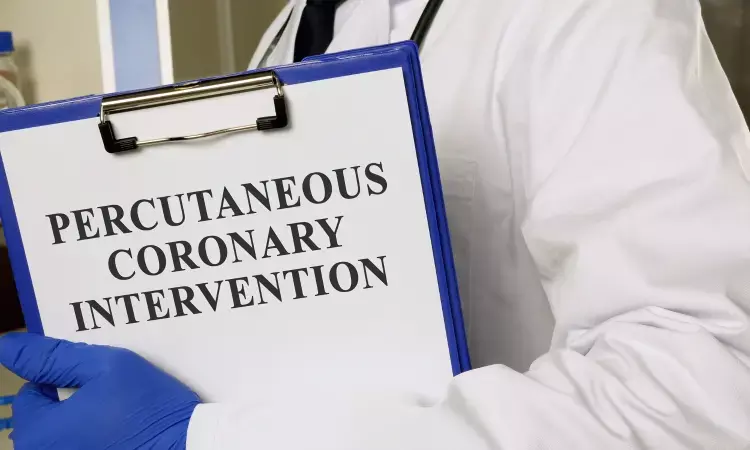- Home
- Medical news & Guidelines
- Anesthesiology
- Cardiology and CTVS
- Critical Care
- Dentistry
- Dermatology
- Diabetes and Endocrinology
- ENT
- Gastroenterology
- Medicine
- Nephrology
- Neurology
- Obstretics-Gynaecology
- Oncology
- Ophthalmology
- Orthopaedics
- Pediatrics-Neonatology
- Psychiatry
- Pulmonology
- Radiology
- Surgery
- Urology
- Laboratory Medicine
- Diet
- Nursing
- Paramedical
- Physiotherapy
- Health news
- Fact Check
- Bone Health Fact Check
- Brain Health Fact Check
- Cancer Related Fact Check
- Child Care Fact Check
- Dental and oral health fact check
- Diabetes and metabolic health fact check
- Diet and Nutrition Fact Check
- Eye and ENT Care Fact Check
- Fitness fact check
- Gut health fact check
- Heart health fact check
- Kidney health fact check
- Medical education fact check
- Men's health fact check
- Respiratory fact check
- Skin and hair care fact check
- Vaccine and Immunization fact check
- Women's health fact check
- AYUSH
- State News
- Andaman and Nicobar Islands
- Andhra Pradesh
- Arunachal Pradesh
- Assam
- Bihar
- Chandigarh
- Chattisgarh
- Dadra and Nagar Haveli
- Daman and Diu
- Delhi
- Goa
- Gujarat
- Haryana
- Himachal Pradesh
- Jammu & Kashmir
- Jharkhand
- Karnataka
- Kerala
- Ladakh
- Lakshadweep
- Madhya Pradesh
- Maharashtra
- Manipur
- Meghalaya
- Mizoram
- Nagaland
- Odisha
- Puducherry
- Punjab
- Rajasthan
- Sikkim
- Tamil Nadu
- Telangana
- Tripura
- Uttar Pradesh
- Uttrakhand
- West Bengal
- Medical Education
- Industry
Immediate multivessel PCI as effective as staged multivessel PCI for reducing risk of mortality, stroke or MI

A percutaneous coronary intervention (PCI) is a minimally invasive procedure widely used to open blocked coronary arteries. In patients with ST-segment elevation myocardial infarction (STEMI) with multivessel coronary artery disease, is a rising concern as the time at which complete revascularization of nonculprit lesions should be performed remains unknown.
Study in The New England Journal of Medicine, reveals that immediate PCI among patients in hemodynamically stable condition with STEMI and multivessel coronary artery disease, was non inferior to staged multivessel PCI with respect to the risk of death from any cause, nonfatal myocardial infarction, stroke, unplanned ischemia-driven revascularization, or hospitalization for heart failure at 1 year.
An international, open-label, randomized, noninferiority trial was conducted by researchers at 37 sites in Europe. Patients in a hemodynamically stable condition who had STEMI and multivessel coronary artery disease were randomly assigned to undergo immediate multivessel percutaneous coronary intervention (PCI; immediate group) or PCI of the culprit lesion followed by staged multivessel PCI of nonculprit lesions within 19 to 45 days after the index procedure (staged group). The primary end point was a composite of death from any cause, nonfatal myocardial infarction, stroke, unplanned ischemia-driven revascularization, or hospitalization for heart failure at 1 year after randomization. The percentages of patients with a primary or secondary end-point event are provided as Kaplan–Meier estimates at 6 months and at 1 year.
The key findings of the study are
• A total of 418 patients to underwent immediate multivessel PCI and 422 to undergo staged multivessel PCI.
• A primary end-point event occurred in 35 patients (8.5%) in the immediate group as compared with 68 patients (16.3%) in the staged group.
• Nonfatal myocardial infarction and unplanned ischemia-driven revascularization occurred in 8 patients (2.0%) and 17 patients (4.1%), respectively, in the immediate group and in 22 patients (5.3%) and 39 patients (9.3%), respectively, in the staged group.
• The risk of death from any cause, the risk of stroke, and the risk of hospitalization for heart failure appeared to be similar in the two groups.
• A total of 104 patients in the immediate group and 145 patients in the staged group had a serious adverse event.
Researchers concluded that “Among patients in hemodynamically stable condition with STEMI and multivessel coronary artery disease, immediate multivessel PCI was noninferior to staged multivessel PCI with respect to the risk of death from any cause, nonfatal myocardial infarction, stroke, unplanned ischemia-driven revascularization, or hospitalization for heart failure at 1 year.”
Reference: Stähli BE, Varbella F, Linke A, et al. Timing of complete revascularization with multivessel PCI for myocardial infarction. N Engl J Med. 2023 August ; DOI: 10.1056/NEJMoa2307823.
Among patients in condition with STEMI and multivessel coronary artery disease,
with respect to the risk of death from any cause, nonfatal myocardial infarction, stroke, unplanned ischemia-driven revascularization, or hospitalization for heart failure at 1 year
MSc. Neuroscience
Niveditha Subramani a MSc. Neuroscience (Faculty of Medicine) graduate from University of Madras, Chennai. Ambitious in Neuro research having worked in motor diseases and neuron apoptosis is interested in more of new upcoming research and their advancement in field of medicine. She has an engrossed skill towards writing and her roles at Medical dialogue include Sr. Content writer. Her news covers new discoveries and updates in field of medicine. She can be reached at editorial@medicaldialogues.in
Dr Kamal Kant Kohli-MBBS, DTCD- a chest specialist with more than 30 years of practice and a flair for writing clinical articles, Dr Kamal Kant Kohli joined Medical Dialogues as a Chief Editor of Medical News. Besides writing articles, as an editor, he proofreads and verifies all the medical content published on Medical Dialogues including those coming from journals, studies,medical conferences,guidelines etc. Email: drkohli@medicaldialogues.in. Contact no. 011-43720751


